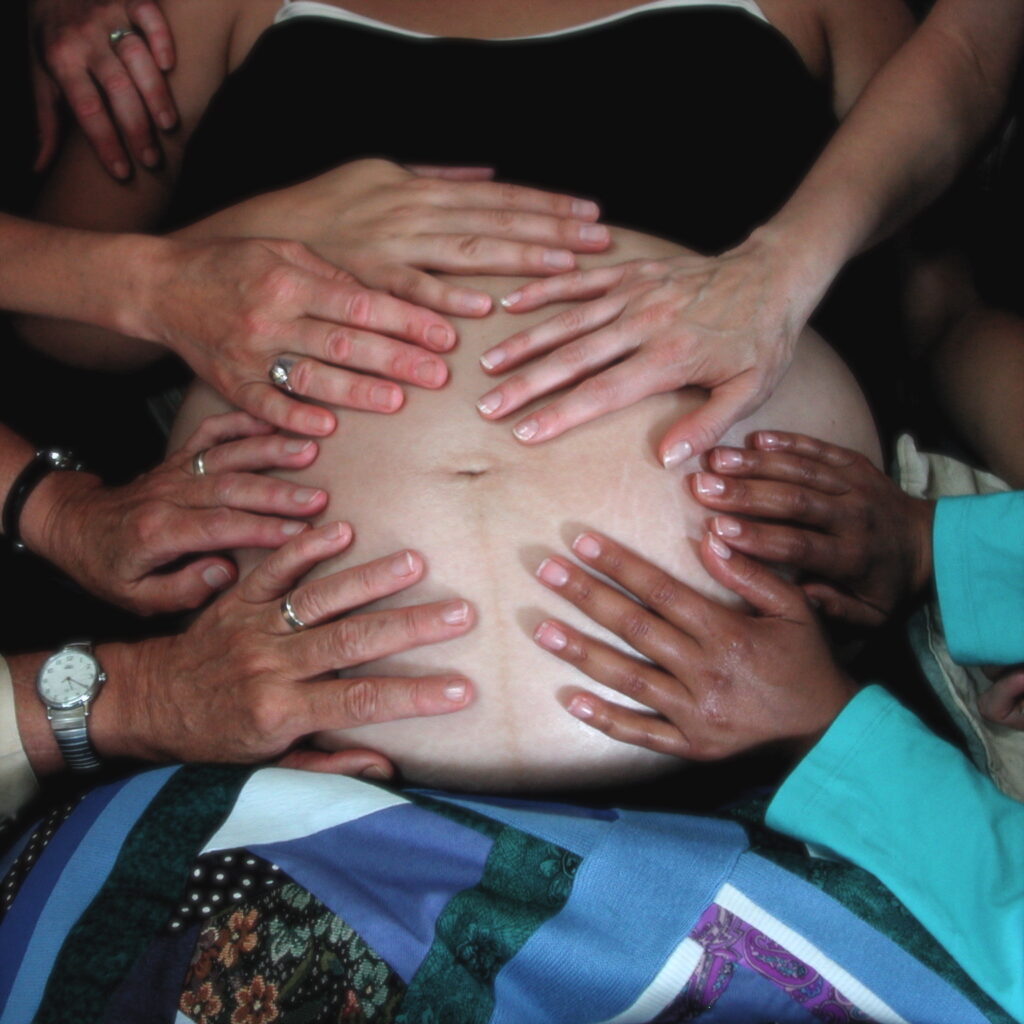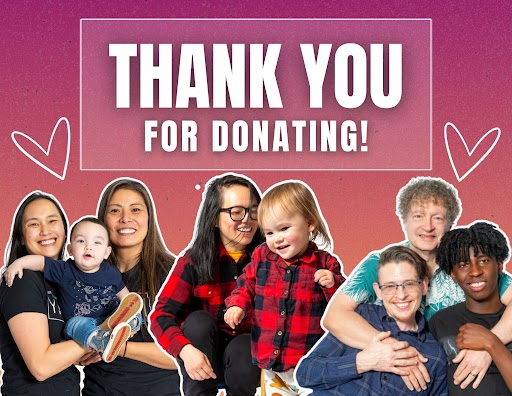Parenthood in the early months and years is notoriously isolating and time-consuming–at a time when a person needs community more than ever. In short order you need to understand how to care for a person whose life is quite literally in your hands. For those whose parenthood begins with the birth of a baby, that little one whose life depends on you is utterly incapable of communicating to you other than wordlessly, by crying, or wincing, or smiling (and that only after weeks and weeks). New parents have to find a way to become capable of suddenly holding this awesome responsibility, with or without help, idefinitely.
For many of us, becoming a parent is the hugest, most profound life change we’ve willingly entered into. For many of us who have come out as queer and trans, becoming a parent is as big as each of those transformative self-realizations, sometimes more so. And because we queer & trans folk usually work very, very hard to become parents, any post-partum let-down–inevitable for all new parents–is uniquely complicated.
“It’s just hard to have a baby.” says Karen Kleiman, founder and director of the Postpartum Stress Center and author of This Wasn’t What I Expected: Overcoming Postpartum Depression. “It’s hard to have a baby and continue to work, at work and at your relationships.” (quoted in “Postpartum Depression Can Happen to Any Parent,” by Julie Beck, The Atlantic, April 2014)
It’s not equally difficult for everyone. Folks who are pediatric medical professionals, or midwives, or doulas, are likely be less overwhelmed by the mysteries of infant health care. Others with years of experience as early childhood educators or care providers may hit fewer road bumps over social and emotional challenges. Folks who were caregivers for younger siblings or other young family members can have a little advance warning of what’s to come. But those of us without any of those priceless previews can easily be dumbfounded and overwhelmed.
Add to this a flood of hormones for those who became parents through giving birth, and life starts to to look even more surreal. And then add to that the stress of parenting as a queer or gender nonconforming or trans parent, in a world unprepared for our parenthood–or worse, unwelcoming of it. Magnify that exponentially for Q/T BIPOC parents. And then finally, since March 2020, there’s the incalculable stress of going through all of the above during a life-threatening pandemic, to which birth parents and infants are uniquely vulnerable.
It’s easy to see how this can add up to overwhelming stress. This is where community comes in.
Study after study shows that community is an invaluable tonic. Time with kindred spirits, even if it’s online and not in person, offers a pressure release valve, a place where you can tell your stories, disclose your worries, hear you are not alone, even learn about resources that can help.
We’ll be offering just this community for post-partum parents in a monthly Postpartum Support Group, starting on Monday, January 10, 2022. It will be facilitated by OFC’s Programs Director (and freshly post-partum parent) Shareena Clark Ascher. Sign up now as a priceless holiday gift for yourself or your loved one, or perhaps as a new year’s resolution to seek out the support you deserve. Hope to see you there in the new year.


